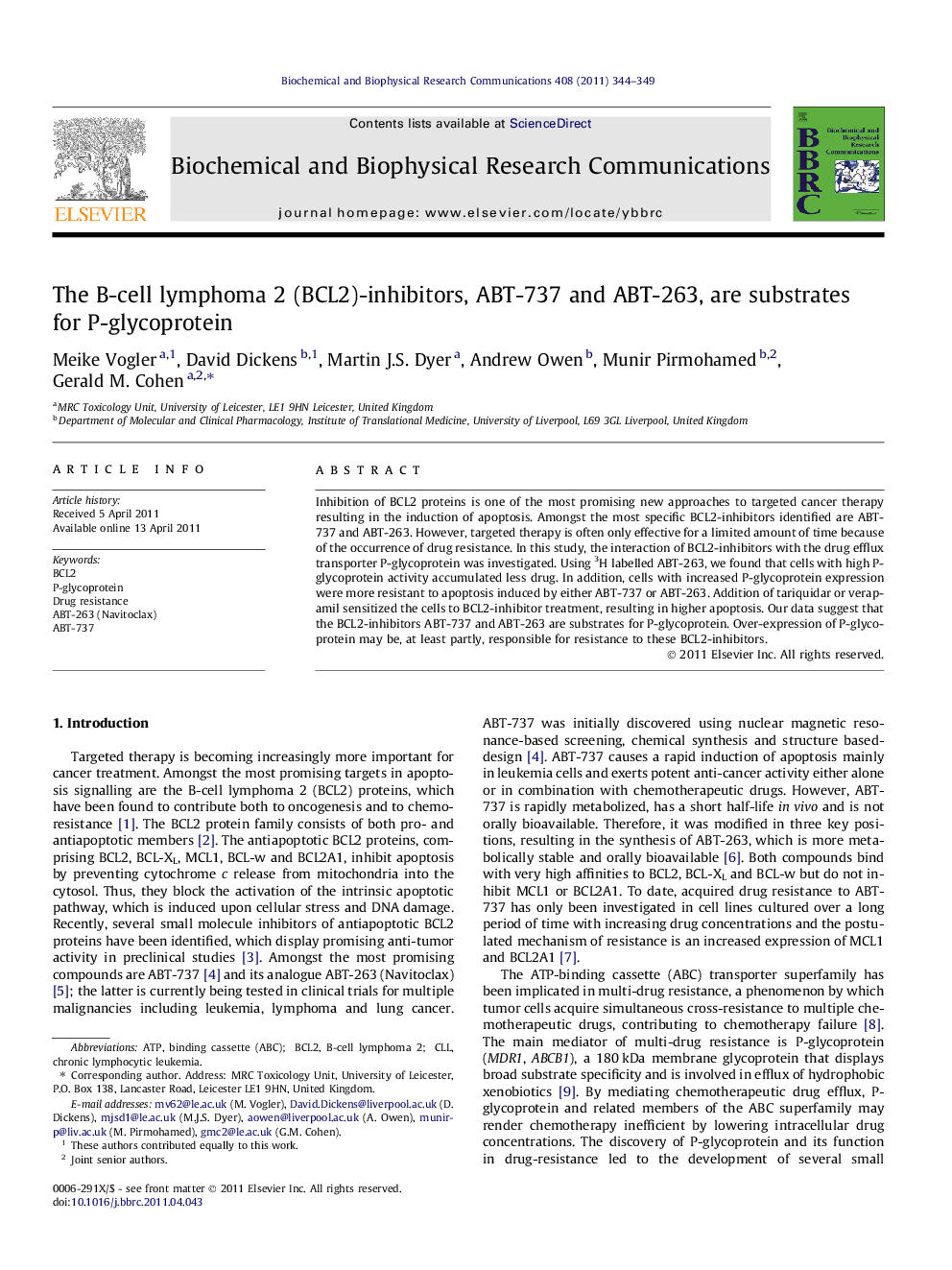| Article ID | Journal | Published Year | Pages | File Type |
|---|---|---|---|---|
| 1930654 | Biochemical and Biophysical Research Communications | 2011 | 6 Pages |
Inhibition of BCL2 proteins is one of the most promising new approaches to targeted cancer therapy resulting in the induction of apoptosis. Amongst the most specific BCL2-inhibitors identified are ABT-737 and ABT-263. However, targeted therapy is often only effective for a limited amount of time because of the occurrence of drug resistance. In this study, the interaction of BCL2-inhibitors with the drug efflux transporter P-glycoprotein was investigated. Using 3H labelled ABT-263, we found that cells with high P-glycoprotein activity accumulated less drug. In addition, cells with increased P-glycoprotein expression were more resistant to apoptosis induced by either ABT-737 or ABT-263. Addition of tariquidar or verapamil sensitized the cells to BCL2-inhibitor treatment, resulting in higher apoptosis. Our data suggest that the BCL2-inhibitors ABT-737 and ABT-263 are substrates for P-glycoprotein. Over-expression of P-glycoprotein may be, at least partly, responsible for resistance to these BCL2-inhibitors.
► The BCL2-inhibitor ABT-263 is a substrate for P-glycoprotein. ► Apoptosis is inhibited by P-glycoprotein expression. ► Overexpression of P-glycoprotein may contribute to resistance to ABT-263 or ABT-737.
